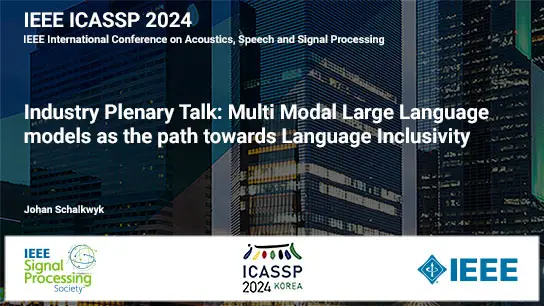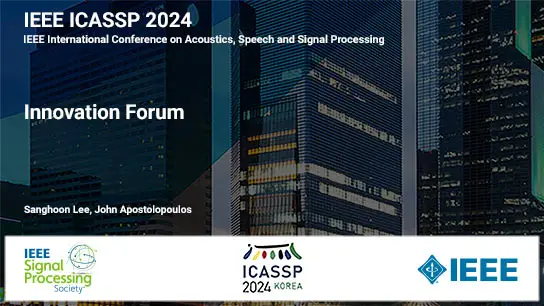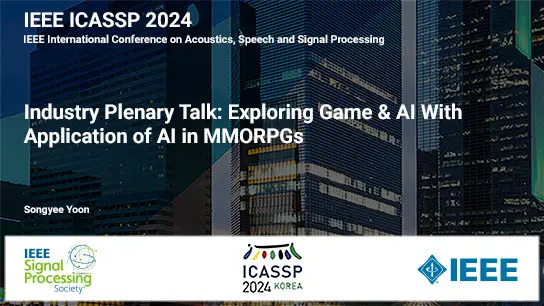Industry Workshop: WS-1: Massive MIMO Evolution towards 5G-Advanced and 6G
Mr. Ganghua Yang, Senior Technical Specialist of WTLAB, Huawei Technologies, China Mr. Shaobo Wang, Deputy Minister of RAN Research Dept, Wireless Network, Huawei Technologies, China Dr. Fei Liu, Huawei Technologies, Singapore
-
Members: FreeSPS
IEEE Members: $11.00
Non-members: $15.00Length: 03:39:23
23 May 2022
With the rapid deployment and commercialization of 5G networks globally, more and more new applications keep emerging in the market, which definitely triggers an explosion of mobile data traffic. It is projected that the data of usage (DoU) of an individual user per month will reach 150 GB by 2025 from 10 GB in 2020 at a compound annual growth rate (CAGR) of 65%. In addition to traditional data service, AV/VR users have grown by 35% annually and will contribute DoU largely beyond 2025. Also, 5G uplink capabilities must be improved by at least 10 times to satisfy uplink-centric services. To deal with such a huge traffic amount on both downlink and uplink, it is believed that the evolving massive MIMO technology will be one of the indispensable and important means for that target. Recently several prospective technologies of massive MIMO are emerging and getting more and more attention. For example, novel antenna system architectures, such as extremely large aperture arrays (ELAA), holographic MIMO and smart surfaces (e.g., intelligent reflecting surfaces (IRSs) or reconfigurable intelligent surfaces (RISs)), and evolved network architectures, such as cell-free massive MIMO or user centric no cell (UCNC) deployment. Also, artificial intelligence (AI) / machine learning (ML) and electromagnetic information theory (EIT) are expected to lay the foundation for intelligent air interface design of massive MIMO transceivers. However, these mentioned technologies are still far from commercial rolling-out. There are still many issues and challenges that need to be addressed from both theoretical and practical points of view. This workshop will bring a good opportunity to attendees from both academia and industry to present novel ideas and to exchange views on massive MIMO evolution openly. We hope that this will inspire the large number of researchers and engineers to think about and tackle the open issues towards the successful applications of these technologies in 5G-Adavnced and 6G. Workshop Program Outline (10 mins) Welcome speech, Mr. Ganghua Yang (25 mins) Keynote #1, Mr. Rui Sun, Senior Vice President of Huawei Wireless Research, Huawei Technologies, China (25 mins) Keynote #2, Prof. Inkyu Lee, IEEE Fellow, Dean at the School of Electrical Engineering, Korea University, Seoul, Korea (25 mins) Keynote #3, Prof. M??rouane Debbah, IEEE Fellow, Chief Researcher of AI & Telecommunication Systems, Technology Innovation Institute, Abu Dhabi, United Arab Emirates (25 mins) Keynote #4, Prof. Linglong Dai, IEEE Fellow, Tsinghua University, Beijing, China (25 mins) Keynote #5, Prof. Qingjiang Shi, Tongji University, Shanghai, China (25 mins) Keynote #6, Prof. Tsung-Hui Chang, The Chinese University of Hong Kong, Shenzhen, China (50 mins) Panel Discussion, moderated by Ganghua Yang Questions to be discussed Based on the consensus on the 5G/6G vision, which of these emerging antenna technologies is the most disruptive one with enormous gain? Does the current massive MIMO architecture need to be changed? And why? In practice, whether new antenna architectures, such as ELAA, IRS/RIS, and cellfree massive MIMO or user centric no cell (UCNC), will be used for 5G-Advanced towards 2025 and beyond. If not, what are obstacles for these emerging antenna technologies used for 5G-Advanced? What are research and engineering directions to make those technologies mature in real deployment? As a hot topic and research trend, would AI/ML be applied widely for massive MIMO which has already mature mathematical modelling and digital signal processing? And why? What are the emerging new use cases for mmWave MIMO toward and beyond?



